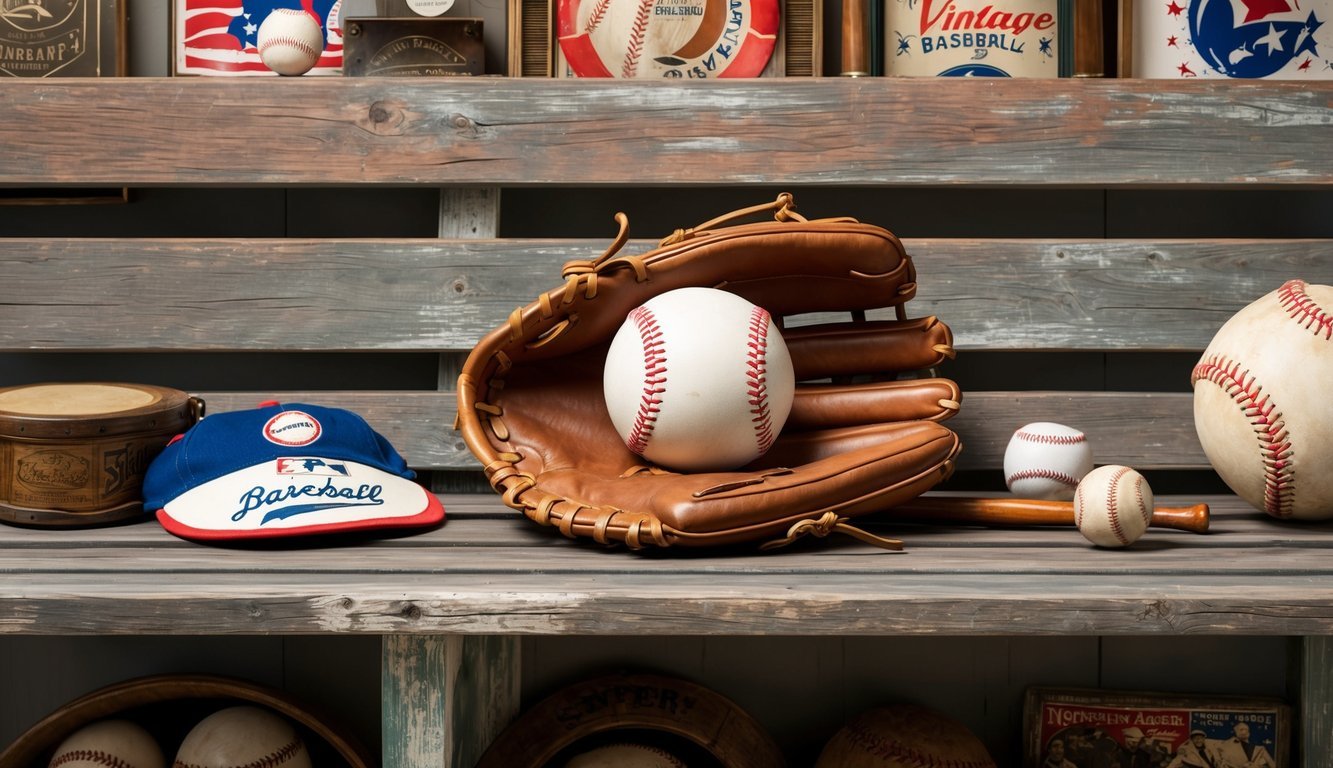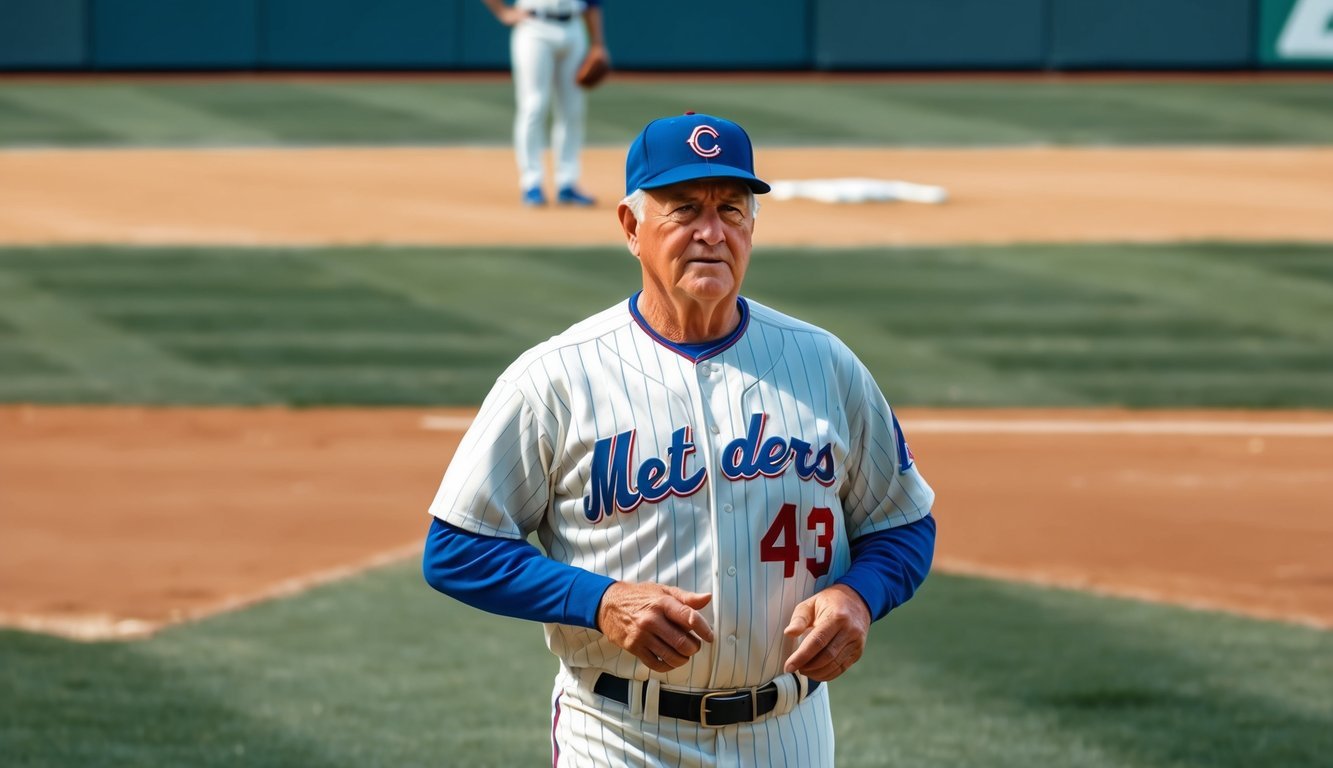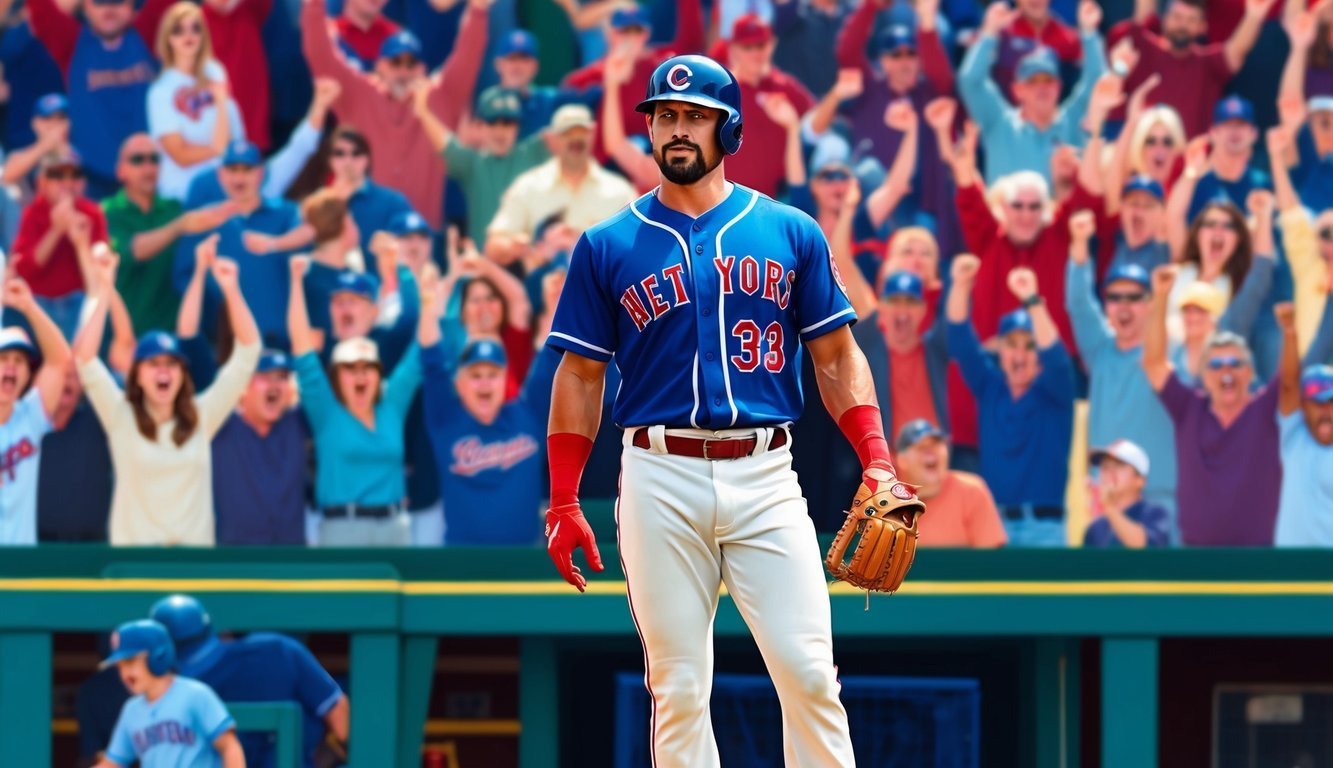Baseball fans often marvel at the longevity of certain players who continue to perform at the highest level well into their 30s and even 40s.
These seasoned veterans bring invaluable experience and leadership to their teams, inspiring younger players and fans alike.
As of the 2024 MLB season, Justin Verlander holds the distinction of being the oldest active player in Major League Baseball at 41 years old.
The right-handed pitcher has defied the odds, maintaining his effectiveness on the mound despite his advancing age.
Verlander’s career serves as a testament to the dedication and physical conditioning required to compete in professional baseball for over two decades.
His presence in the league alongside other veteran players like Joey Votto and Charlie Morton showcases the enduring passion these athletes have for America’s pastime.
The Journey to Becoming the Oldest Active MLB Player
Reaching the pinnacle of baseball longevity requires talent, dedication, and a bit of luck.
Players face numerous challenges as they strive to maintain their skills and health over decades-long careers.

Path to the Major Leagues
Most MLB players start their journey in high school or college baseball programs.
Scouts identify promising talent, leading to the MLB draft or international free agent signings.
Minor league systems then shape these young prospects.
Players typically spend 3-5 years honing their skills in the minors before making their MLB debuts.
Some exceptional talents may reach the big leagues faster, while others take longer to develop.
The average MLB debut age is around 24.
However, players aiming for lengthy careers must quickly establish themselves as valuable assets to their teams.
Defining ‘Oldest Active Player’
The title of “oldest active MLB player” is a moving target, changing as veterans retire and others extend their careers.
To claim this distinction, a player must:
• Be on an active MLB roster
• Regularly participate in games
• Maintain performance standards
Age alone doesn’t guarantee the title.
Players must contribute meaningfully to their teams, whether as starters, relievers, or bench players.
In recent years, pitchers like Justin Verlander have led the age rankings.
Position players like Nelson Cruz have also defied Father Time, continuing to produce well into their 40s.
Profiles of Veteran MLB Superstars
Several experienced players have left an indelible mark on Major League Baseball through their longevity and outstanding performances.
These veterans continue to inspire fans and teammates alike with their dedication to the sport.
Rich Hill’s Resilient Career
Rich Hill has defied expectations throughout his MLB journey.
At 44 years old, he remains a competitive pitcher in the league.
Hill’s career has been marked by comebacks and reinventions.
He debuted in 2005 but truly found his stride in his late 30s.
His curveball became his signature pitch, baffling batters across the league.
Hill’s resilience shines through his ability to adapt and overcome injuries.
His success in later years has made him a role model for players fighting to extend their careers.
Hill’s story serves as inspiration for aspiring pitchers who face setbacks.
The Accomplishments of Albert Pujols
Albert Pujols retired as one of baseball’s greatest hitters.
His 22-year career was filled with remarkable achievements.
Pujols finished with 703 home runs, placing him fourth on the all-time list.
He earned three National League MVP awards and was selected to 11 All-Star teams.
Pujols’s consistency at the plate was legendary.
He maintained a career batting average of .296 and drove in 2,218 runs.
His final season in 2022 saw a resurgence, thrilling fans with vintage Pujols performances.
He reached the 700-homer milestone, cementing his place among baseball’s elite.
Nelson Cruz: A Power Hitter’s Longevity
Nelson Cruz has been a formidable presence in MLB lineups well into his 40s.
Known for his powerful swing, Cruz has amassed over 450 home runs in his career.
He’s been selected to seven All-Star teams and won four Silver Slugger awards.
Cruz’s ability to maintain his power-hitting prowess as he aged is remarkable.
His leadership in the clubhouse has made him a valuable asset to multiple teams.
Cruz’s dedication to fitness and preparation has allowed him to remain productive at an advanced age for a baseball player.
Yadier Molina: A Master Behind the Plate
Yadier Molina retired in 2022 after 19 seasons with the St. Louis Cardinals.
He is widely regarded as one of the best defensive catchers in MLB history.
Molina earned nine Gold Glove awards for his exceptional skills behind the plate.
His game-calling ability and rapport with pitchers set him apart from his peers.
At the plate, Molina was no slouch, compiling over 2,000 hits in his career.
He was selected to 10 All-Star teams and won two World Series championships with the Cardinals.
Molina’s leadership and baseball IQ made him an integral part of the Cardinals’ success for nearly two decades.
Age and Performance in Baseball
Baseball players can maintain high performance levels well into their 30s and even 40s.
Experience and skill refinement often offset physical decline, allowing veterans to contribute significantly.
Contributions Beyond the Statistics
Older players bring intangible benefits to their teams.
They mentor younger teammates, sharing wisdom gained from years in the game.
Veterans often excel in high-pressure situations, drawing on their experience to stay calm.
Their leadership in the clubhouse can be invaluable, fostering team cohesion and a winning culture.
Many seasoned players adapt their style as they age.
They may rely more on technique and strategy rather than raw power or speed.
This evolution can lead to continued success, even as their physical abilities change.
The Impact of Experience
With age comes a deep understanding of the game’s nuances.
Veteran pitchers often have a broader repertoire of pitches and better command.
They can outsmart batters by mixing speeds and locations effectively.
Experienced hitters recognize pitch patterns more easily and make better decisions at the plate.
Their improved plate discipline often results in higher on-base percentages.
Defensively, older players position themselves better, compensating for reduced range.
Teams value the steadying presence of seasoned players during slumps or playoff races.
Their ability to perform under pressure can be crucial in tight games or critical series.
Staying in the Game: Health and Endurance

Maintaining peak physical condition is crucial for older MLB players to extend their careers.
Proper nutrition, specialized training regimens, and advanced recovery techniques all play vital roles.
Injury Prevention and Recovery
Veteran players focus on injury prevention through tailored workout programs.
They often incorporate yoga, Pilates, and flexibility exercises to improve joint mobility and reduce strain.
Nutrition is key.
Many seasoned athletes work with dietitians to create meal plans that support muscle recovery and overall health.
Rest becomes increasingly important.
Older players may skip some spring training games or take more frequent days off during the season to stay fresh.
Advanced recovery methods like cryotherapy, massage, and compression therapy help aging bodies bounce back quicker between games.
Teams closely monitor older players’ workloads.
Pitchers might have stricter pitch counts or extra rest between starts.
When injuries do occur, experienced players often heal faster due to their knowledge of their bodies and access to top-notch medical care.
Teams and Contracts: Securing a Spot

Older players face unique challenges in securing spots on major league rosters.
Their experience and leadership can be valuable assets, but teams must weigh these against potential physical decline and salary considerations.
Free Agency and Trades
Veteran players often find themselves on the move through free agency or trades.
The Cardinals, Mets, Braves, Pirates, and Padres have all signed or traded for seasoned players in recent years.
These teams recognize the value of experience in their clubhouses.
For instance, the Mets signed Max Scherzer at age 37 to a lucrative three-year deal in 2022.
The Braves acquired Charlie Morton at 36, and he’s remained effective into his 40s.
Free agency can be a double-edged sword for older players.
While some secure hefty contracts, others may find limited interest and settle for minor league deals with spring training invites.
Role of the Designated Hitter (DH)
The DH rule has been a career extender for many aging players.
It allows them to contribute offensively without the physical demands of fielding a position.
Nelson Cruz, for example, has thrived as a DH well into his 40s.
The universal DH, adopted in 2022, opened up more opportunities for older hitters in the National League.
Teams like the Cardinals have used the DH spot to keep veteran bats in the lineup while managing their defensive workload.
This flexibility can be crucial in roster construction, especially for clubs with experienced sluggers.
The DH role often comes with more affordable contracts, making it an attractive option for both players and teams looking to maximize value.
Legacy and Impact of Seasoned Players

Veteran baseball players leave an indelible mark on the sport, shaping team culture and inspiring future generations.
Their experience and leadership prove invaluable both on and off the field.
Mentoring the Youth
Seasoned players often take on mentorship roles, guiding younger teammates through the challenges of professional baseball.
They share hard-earned wisdom about pitch selection, defensive positioning, and mental toughness.
Many rookies credit their rapid development to advice from grizzled veterans.
These elder statesmen also lead by example, demonstrating proper work ethic and preparation.
Their commitment to pregame routines and off-season training sets the standard for up-and-coming stars.
Clubhouse dynamics benefit too, as veterans help build team chemistry and resolve conflicts.
Some teams even assign veteran players as official mentors to top prospects, fostering bonds that last beyond their playing days.
A Farewell Tour: The Final Season
Baseball’s most beloved superstars celebrate their final season.
Fans flock to ballparks for one last glimpse of their favorite players in action.
Teams often honor retiring legends with pre-game ceremonies and special gifts.
As the season progresses, the atmosphere in stadiums becomes electric, with nostalgic tributes and heartfelt farewells filling the air.
Amid these emotional moments, fans are also reminded of the rich history of the game, often referencing the largest MLB stadium rankings to highlight the iconic venues that have hosted legendary players throughout the years.
Each game becomes a celebration of both incredible careers and the love of baseball that unites fans from all walks of life.
These farewell tours can boost ticket sales and TV ratings.
They also give players a chance to reflect on their achievements and thank supporters.
Many use their platform to raise money for charity or promote causes close to their hearts.
The quest for one last World Series ring adds drama to these swan songs.
Even as skills decline, clutch performances in the playoffs can cement a player’s legacy and provide storybook endings to illustrious careers.
